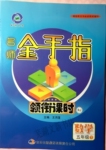


 Ãûʦ½ðÊÖÖ¸ÁìÏοÎʱϵÁдð°¸
Ãûʦ½ðÊÖÖ¸ÁìÏοÎʱϵÁдð°¸
| Ä꼶 | ¸ßÖÐ¿Î³Ì | Ä꼶 | ³õÖÐ¿Î³Ì |
| ¸ßÒ» | ¸ßÒ»Ãâ·Ñ¿Î³ÌÍƼö£¡ | ³õÒ» | ³õÒ»Ãâ·Ñ¿Î³ÌÍƼö£¡ |
| ¸ß¶þ | ¸ß¶þÃâ·Ñ¿Î³ÌÍƼö£¡ | ³õ¶þ | ³õ¶þÃâ·Ñ¿Î³ÌÍƼö£¡ |
| ¸ßÈý | ¸ßÈýÃâ·Ñ¿Î³ÌÍƼö£¡ | ³õÈý | ³õÈýÃâ·Ñ¿Î³ÌÍƼö£¡ |
¿ÆÄ¿£º³õÖÐÓ¢Óï À´Ô´£º²»Ïê ÌâÐÍ£ºÔĶÁÀí½â
| Title: teenagers aren¡¯t getting worse and worse | |
| Teenagers¡¯ opinion | They can do 1_______ jobs and drive a car. |
| Parents¡¯ opinion | They help do 2._______ at home. There should be some clubs for teenagers to join so that they3. _______ feel bored. |
| Teachers¡¯ opinion | Young people are kind and 4._______. |
| Writer¡¯s opinion | Teenagers are kind and help look after patients and younger students in 5______ hospitals or primary school. |
²é¿´´ð°¸ºÍ½âÎö>>
¿ÆÄ¿£º³õÖÐÓ¢Óï À´Ô´£º²»Ïê ÌâÐÍ£ºÔĶÁÀí½â
| A£®In Mrs. Green¡¯s house. | B£®Near Mrs. Green¡¯s house. |
| C£®Under the street. | D£®In the mall(ÉÌÒµ½Ö). |
| A£®Mrs. Green and Mr. Green. | B£®Mrs. Green and Tim. |
| C£®Mrs. Green and Mimi. | D£®Tim and Mimi. |
| A£®fish | B£®hot dogs | C£®rice | D£®vegetable |
| A£®Yes, she does. | B£®No, she doesn't . |
| C£®Yes, she is. | D£®We don't know. |
| A£®Mr. Green. | B£®Mrs. Green. | C£®Mimi. | D£®Tim. |
²é¿´´ð°¸ºÍ½âÎö>>
¿ÆÄ¿£º³õÖÐÓ¢Óï À´Ô´£º²»Ïê ÌâÐÍ£ºÔĶÁÀí½â
| Mary¡¯s Plan for Next Week Monday 7:30am computer lessons for beginners Tuesday 11:00am see a doctor Wednesday 9:00am ping-pong game Evening study for the English test Thursday 8:30am concert Friday Afternoon help Uncle Sam in his restaurant Saturday 9:00¡«10:30am art lesson 2:00pm visit grandmother Sunday 10:30am go shopping with Ann and Lucy | Peter¡¯s Plan for Next Week Monday 3:00pm study group meeting Tuesday 4:30pm basketball match Wednesday 2:00pm visit some friends Thursday Noon lunch with Mike Friday 2:00¡«4:00pm basketball practice Saturday 10:00am shopping Sunday 9:00pm basketball team party |
| A£®basketball | B£®soccer | C£®volleyball | D£®ping-pong |
| A£®she likes play guitar |
| B£®she is very good at computer |
| C£®she just begins to learn computer |
| D£®she will see the doctor on Wednesday |
| A£®she will visit her grandmother next Saturday afternoon. |
| B£®she may have an English test next Tuesday |
| C£®she will go shopping with her friend next Sunday evening |
| D£®she will visit some friends on Wednesday afternoon |
²é¿´´ð°¸ºÍ½âÎö>>
¿ÆÄ¿£º³õÖÐÓ¢Óï À´Ô´£º²»Ïê ÌâÐÍ£ºÔĶÁÀí½â
| A£®Yangzhou | B£®Australia | C£®America | D£®England |
| A£®Ó¢Óïд×÷ | B£®Ó¢Óï¿ÚÓï | C£®Ó¢Óï±í´ï | D£®Ó¢ÓÊÔ |
| A£®speak English very well before she practices |
| B£®get high marks£¨·ÖÊý£© in English exams |
| C£®get high marks in all exams |
| D£®live in the UK after the summer holidays |
| A£®to speak English only with foreign people |
| B£®to meet only with foreign people |
| C£®for people to practice speaking English |
| D£®in England |
| A£®She can go to England |
| B£®She can live with her grandparents and parents. |
| C£®Her spoken English is much better. |
| D£®She likes ¡°English Corner¡±. |
²é¿´´ð°¸ºÍ½âÎö>>
¿ÆÄ¿£º³õÖÐÓ¢Óï À´Ô´£º²»Ïê ÌâÐÍ£ºÍêÐÎÌî¿Õ
| СÌâ1: |
|
| СÌâ2: |
|
| СÌâ3: |
|
| СÌâ4: |
|
| СÌâ5: |
|
| СÌâ6: |
|
| СÌâ7: |
|
| СÌâ8: |
|
²é¿´´ð°¸ºÍ½âÎö>>
¿ÆÄ¿£º³õÖÐÓ¢Óï À´Ô´£º²»Ïê ÌâÐÍ£ºÔĶÁÀí½â
| A£®America | B£®Australia | C£®England | D£®Denmark |
| A£®from 1959 to 1973 | B£®from 1962 to 1973 |
| C£®from 1959 to 1967 | D£®from 1962 to 1967 |
| A£®´´Á¢ | B£®Éè¼Æ | C£®Ê©¹¤ | D£®¿¢¹¤ |
| A£®Utzon | B£®The public |
| C£®Queen Elizabeth ¢ò | D£®The government |
| A£®Sailing Roof |
| B£®Travelling in Sydney |
| C£®The Sydney Opera House |
| D£®The Opening of the Opera House |
²é¿´´ð°¸ºÍ½âÎö>>
¿ÆÄ¿£º³õÖÐÓ¢Óï À´Ô´£º²»Ïê ÌâÐÍ£ºÔĶÁÀí½â
| __75__ Do Children and Their Parents Argue? | ||
| Reason | Parents want their child to be the __76__ | A. They __78__ their children in different ways. B. Their children should __79__ hard all the time. C. __80__TV and playing games on the Internet are__81__ for their studies. |
| Many children want to do many __77__ things. | A. They like to sing pop __82__, listen to the QQ music and other __83__ things. B. They usually spend a lot of time surfing on the Internet and playing QQ games, __84__online with their friends. | |
²é¿´´ð°¸ºÍ½âÎö>>
¿ÆÄ¿£º³õÖÐÓ¢Óï À´Ô´£º²»Ïê ÌâÐÍ£ºÔĶÁÀí½â
| A£®7 | B£®6 | C£®9 | D£®10 |
| A£®She is a doctor. |
| B£®She is a teacher. |
| C£®She is a nurse. |
| D£®She is a worker. |
| A£®Yes, he is. | B£®No, he is not. |
| C£®Yes, they are. | D£®No, they aren¡¯t¡£ |
| A£®Four | B£®Five | C£®Three | D£®Two |
²é¿´´ð°¸ºÍ½âÎö>>
¹ú¼ÊѧУÓÅÑ¡ - Á·Ï°²áÁбí - ÊÔÌâÁбí
ºþ±±Ê¡»¥ÁªÍøÎ¥·¨ºÍ²»Á¼ÐÅÏ¢¾Ù±¨Æ½Ì¨ | ÍøÉÏÓк¦ÐÅÏ¢¾Ù±¨×¨Çø | µçÐÅթƾٱ¨×¨Çø | ÉæÀúÊ·ÐéÎÞÖ÷ÒåÓк¦ÐÅÏ¢¾Ù±¨×¨Çø | ÉæÆóÇÖȨ¾Ù±¨×¨Çø
Î¥·¨ºÍ²»Á¼ÐÅÏ¢¾Ù±¨µç»°£º027-86699610 ¾Ù±¨ÓÊÏ䣺58377363@163.com